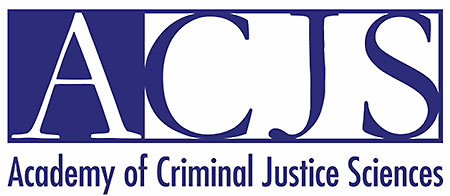Anti-Discrimination/Harrassment
1. ACJS Commitment to a Culture Free of Discrimination and Harassment
The Academy of Criminal Justice Sciences (ACJS) is committed to providing a safe, inclusive, and welcoming environment for all Association members and participants at its conferences, events, and virtual meeting places. ACJS therefore strives toward a culture free of discrimination and harassment, especially discrimination or harassment on the basis of actual or perceived sex, gender identity, race, ethnicity, sexual orientation, disability, socioeconomic status, age, religion, national origin, citizenship status, criminal record, veteran status, or their intersection.
Discrimination against or harassment of Association members, colleagues, students, or other conference participants undermines professional norms that promote scholarly exchange and professional development. Such discrimination or harassment also undermines equal access to and enjoyment of the scholarly activities of ACJS. “Participant” in this statement refers to anyone present at ACJS meetings or events, including staff, contractors, vendors, exhibitors, venue staff, ACJS members, and all other attendees. The ACJS statement is intentionally broader than most anti-discrimination laws to create an environment conducive to scholarly exchange.
One of the central tenets of justice society scholarship is that policies alone rarely guarantee social change. Therefore, we couple our anti-discrimination and anti-harassment statement with a request that all ACJS participants proactively help to establish a culture of respect in which all participants feel welcome and included. Such a culture will provide the best possible environment for intellectual exchange and professional development. Specifically, we request that all participants be aware of situations, actions, or language that may have the effect of making others feel unwelcome or disrespected and, if necessary, take action when such situations, action, or language are observed. We encourage all participants to be reflective about their language and to strive to ensure that their biases, both explicit and implicit, are not contributing to an environment that may be perceived by some as hostile to their group.
2. The ACJS Anti-Discrimination and Anti-Harassment Statement
ACJS prohibits discrimination or harassment, including but not limited to discrimination or harassment on the basis of actual or perceived sex, gender identity, race, ethnicity, sexual orientation, disability, socioeconomic status, age, religion, national origin, citizenship status, criminal record, veteran status, or their intersection. This statement does not prohibit affirmative action, which in some situations may be necessary to avoid discrimination. ACJS encourages anyone who experiences harassment or discrimination to use one of the complaint options outlined in this statement.
3. What is Discrimination?
Discrimination includes unequal treatment of participants on the basis of actual or perceived sex, gender, gender identity, race, ethnicity, sexual orientation, disability, socioeconomic status, age, religion, national origin, citizenship status, criminal record, or veteran status, or their intersection. Discrimination also includes actions or comments that have an unequal effect on participants on the basis of actual or perceived sex, gender, gender identity, race, ethnicity, sexual orientation, disability, socioeconomic status, age, religion, national origin, legal status, criminal record, or veteran status, or their intersection.
4. What is Harassment?
Harassment includes all actions or comments that are reasonably experienced as intimidating, harassing, abusive, derogatory, demeaning, or consistently marginalizing. Harassment also includes unwanted touching, harassing photography or recording, sustained disruption of talks or other events, and the real or implied threat of physical harm. Harassment is uniquely harmful when actions or comments are related to actual or perceived sex, gender identity, race, ethnicity, sexual orientation, disability, socioeconomic status, age, religion, national origin, legal status, criminal record, veteran status, or their intersection.
5. What is Sexual Harassment?
Sexual harassment is a form of harassment. Sexual harassment includes severe or pervasive unwelcome solicitation of physical or emotional intimacy or touching, as well as severe or pervasive commentary or nonverbal conduct that is sexual in nature, regardless of the gender of the complainant. To be sexual harassment, the harassment need not involve sexual desire.
6. What is the Standard for Evaluating Claims of Discrimination or Harassment?
Under this statement, discrimination and harassment are defined not by the intent of the perpetrator but rather from the perspective of a reasonable person in the complainant’s position, using a preponderance of the evidence standard.
7. What You Can Do to Help Create a Culture Free of Discrimination and Harassment
Association members and participants can play a role in creating an environment free of harassment and discrimination by following the norms of professional respect that help to promote honest intellectual exchange and quality scholarship. Participants should be proactive about mitigating harm to other conference participants. Participants can be proactive by: (1) recognizing that the power differences inherent in academia and in society generally can inhibit less powerful parties such as students and junior scholars from voicing their objections to offensive comments or behavior; (2) recognizing that harassment may take the form of subtle conduct, including unintentional conduct, that is harmful to groups that lack societal power; (3) taking affirmative steps to include others in conference conversations or activities; and (4) being an active bystander if you observe potential harm to another participant.
To download a copy of this statement, click here.
